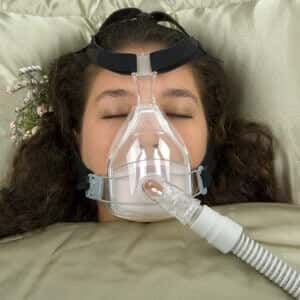
Snoring seems like a mild annoyance, especially for bed partners. But snoring could signal a more serious condition called sleep apnea. When this happens, people’s upper airways collapse briefly interrupting their breathing. For some people this can happen dozens or even hundreds of times a night.
People with serious sleep apnea are at risk for hypertension and other cardiovascular complications. Two studies in the Journal of the American Medical Association tested whether treating sleep apnea with Continuous Positive Airway Pressure or CPAP devices would lower blood pressure. They came to conflicting conclusions. In one, prescribing CPAP made no difference in hypertension, but in the other, treatment with CPAP did lower blood pressure. An editorial in the Journal suggests that sleep apnea might be a treatable cause of high blood pressure.

